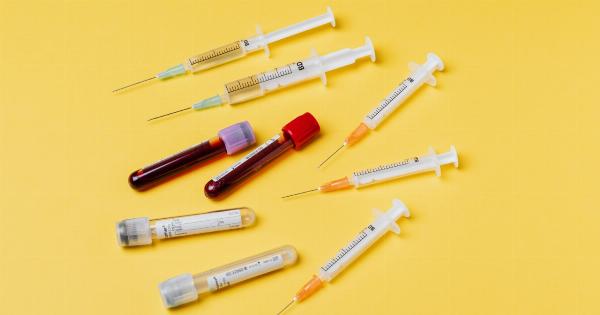It is important to keep your medicines safe from heat to ensure their potency and effectiveness. High temperatures can affect the chemical composition of medicines, leading to reduced efficacy or even potential harm.
In this article, we will discuss practical ways to protect your medicines from heat.
Understanding the Impact of Heat on Medicines
Medicines can become less effective or even unsafe if exposed to high temperatures. Heat can increase the rate of chemical reactions within the medicines, leading to chemical changes that can render them ineffective or toxic.
Storing medicines in an environment that is too hot can cause them to degrade, which results in reduced efficacy. For example, insulin may lose its potency if exposed to high temperatures. Therefore, it’s crucial to follow some guidelines when storing medicines.
How to Keep Your Medicines Safe from Heat
Here are some ways to protect your medicines:.
1. Check the Medicine Label
The label on your medicine may provide specific storage instructions. Some medicines need to be stored in a cool place, while others need to be stored at room temperature. You should read the label and follow its instructions.
Some medication may need to be refrigerated to maintain their effectiveness.
2. Store Medicines in a Cool and Dry Place
Medicines should be stored in a cool, dry place. Avoid storing medicines in places that get hot, such as near a radiator, on top of a refrigerator, or in a car. The ideal temperature range for storing most medicines is between 68-77°F (20-25°C).
If the temperature is too high, the quality and effectiveness of the medicine could be compromised.
3. Use the Original Container
Keep the medicine in the original container to ensure that the packaging is intact and the label is easily readable. The container is designed to protect the medicine from exposure to light, moisture, and air.
It also acts as a barrier to temperature changes, which can protect the medicine from heat.
4. Avoid Sunlight Exposure
Medicines should not be exposed to direct sunlight. UV rays can break down the chemicals in the medicine, which can reduce its effectiveness.
Therefore, it’s essential to store medicines in a shaded place or a drawer where direct sunlight cannot reach.
5. Do Not Store in Humid or Damp Areas
Keep the medicine in a dry and cool place to protect it from moisture. Humidity or dampness can cause the medicine to deteriorate and lose its effectiveness.
Avoid storing medicines in areas where they may be exposed to moisture, such as bathrooms or kitchens.
6. Carry Medicines with You
If you are travelling, you should pack your medicines in an insulated bag or cooler with ice packs to keep them cool during transit. Keep the medication in your carry-on baggage, so you have access to them anytime you need them.
7. Refill Prescriptions Regularly
You should get your prescription refilled regularly as prescribed by your doctor. Avoid stocking up on medicines, as they may expire or lose potency before you can use them.
8. Dispose of Expired Medicines Correctly
Expired medicines should be disposed of correctly. Expired medicines may be ineffective, and they may also pose a risk for poisoning or overdose.
Contact your local pharmacy or a medication disposal program to find out how to dispose of expired medicines safely.
9. Do Not Store Medicines in the Fridge Door
The temperature in the fridge door fluctuates frequently, making it unsuitable for storing medicines. You should store your medications in the main compartment of the fridge, where the temperature is more stable.
10. Seek Professional Advice
If you are unsure about how to store your medicine, consult your physician or pharmacist. They can give you specific advice on how to store medicines safely and effectively.
Conclusion
In conclusion, it’s essential to store your medicines in an environment that is cool, dry, and free from direct sunlight or fluctuations in temperature.
By following these guidelines, you can protect your medicines from heat and maintain their effectiveness. If you have any concerns or questions about storing your medicine, don’t hesitate to seek professional advice.






























